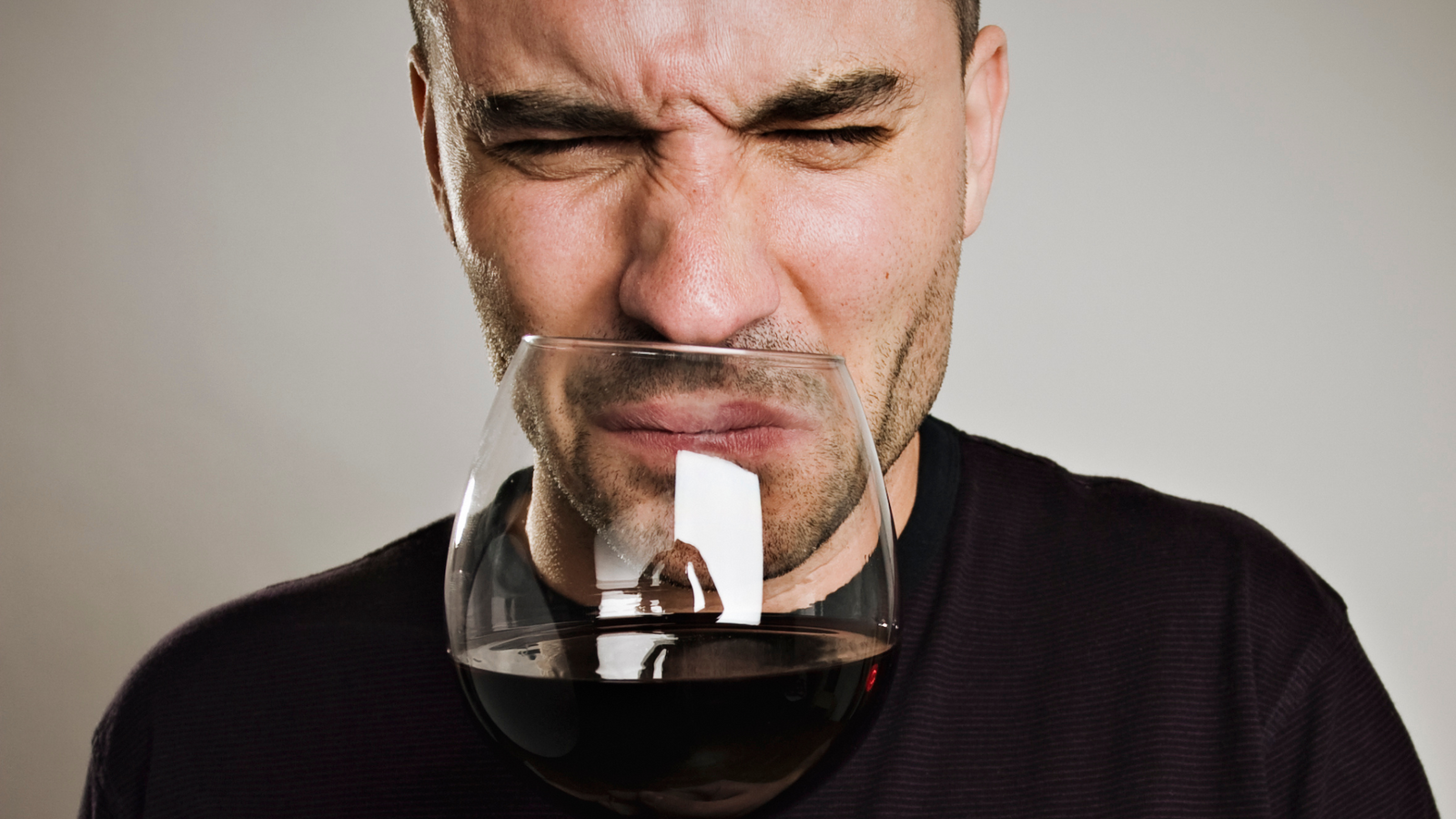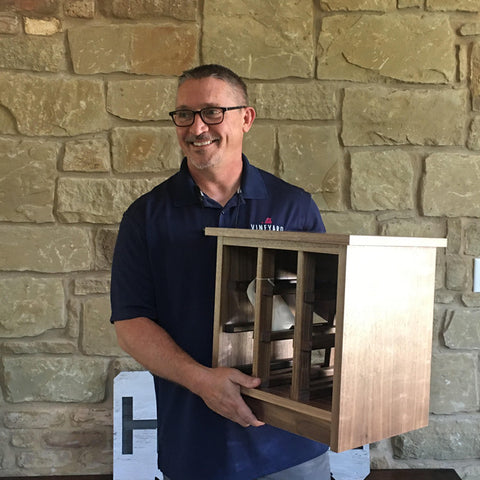Can wine truly go bad overnight? The short answer is no. A night outside the fridge won't doom your wine, but factors like type, temperature, and time ultimately determine its fate. So, grab a glass and settle in because we're about to uncork the truth behind this vinous mystery. We’ll dissect the science and equip you with the basic knowledge so you can stop freaking out the next time there’s a wine fridge fiasco.
Understanding the Basics of Wine Components
What wine is made of plays a role in its aging. Let’s look at these components that make up our favorite vino.
Alcohol Content
Alcohol doesn’t just give you the buzz you like. It also acts as a preservative, slowing down bacterial growth. The antioxidants in wine, such as polyphenols and resveratrol, help to prevent oxidation, which can cause the wine to spoil and lose its flavor.
Acidity
The acidity keeps the flavor profile vibrant and prevents dullness. It inhibits bacterial growth and stabilizes color, especially in whites and rosés.
Tannins
This astringent, found primarily in red wines, acts like an invisible shield. They bind with oxygen, limiting its harmful effects and contributing to complex aging aromas. While higher tannin content doesn't necessarily make a wine immune to damage (a single night outside the fridge won't be affected much by tannin levels), it does contribute to its overall robustness and resistance to age-related deterioration.
Factors that Affect Wine’s Lifespan

Does wine go bad if not chilled? A single night outside the fridge or if your fridge stops working during the night isn't necessarily a death sentence. Several factors could contribute to wines going bad.
Oxygen
Oxygen plays a crucial role in the wine aging process. It interacts with various components in the wine, such as phenols and tannins, initiating chemical reactions that contribute to the maturation of the wine.
Controlled and limited oxygen: Oxidation helps soften tannins, integrate flavors, and enhance the overall complexity, giving the wine a more refined and nuanced character
- Excessive oxygen exposure Breaks down wine's chemical composition and loses its vibrancy, resulting in a flat or dull taste with diminished fruitiness and freshness. It can also change the wine's color, smell, and acidity.
Temperature
Wines prefer a consistent rhythm. Drastic temperature fluctuations can throw them off balance, impacting their stability and accelerating aging. But a brief waltz from the chilly fridge to room temperature won't necessarily lead to a tragic downfall. Cooler temperatures are better for storing wine, ideally between 45°F - 55°F (7°C - 13°C). As long as wines are kept within the ideal temperature range, they're relatively safe from going bad fast. One day at a slightly elevated temperature might not be critical, but longer durations will increase the risk of spoilage or flavor alterations.
Wine’s Aging Period
Different wines age at different paces. For instance, a young Sauvignon Blanc may wilt faster than a stoic, aged Cabernet Sauvignon. Similarly, sparkling wines are more susceptible to losing their effervescence with their delicate bubbles than their fuller-bodied counterparts. So, while an overnight adventure might not be fatal, remember that time is also a factor to consider.
Other Factors Affecting Wine Aging
- Storage conditions: The material and insulation of the cooler, as well as any surrounding environmental factors (e.g., sunlight exposure), can affect how quickly the temperature rises.
- Type of wine: Whites and sparkling wines are generally more susceptible to spoilage due to lower acidity and less tannin to act as preservatives. Reds tend to fare better. But wine does not go bad overnight, regardless of type.
Estimates of Wine Lifespan
- Light White Wines (Pinot Grigio, Sauvignon Blanc)
- Unopened: 1-2 years
- Opened & Stored Correctly: 2-3 days
- Full-Bodied White Wines (Chardonnay, Viognier)
- Unopened: 2-3 years
- Opened & Stored Correctly: 3-5 days
- Light Red Wines (Pinot Noir, Gamay)
- Unopened: 2-5 years
- Opened & Stored Correctly: 3-5 days
- Medium Red Wines (Merlot, Syrah)
- Unopened: 3-7 years
- Opened & Stored Correctly: 4-7 days
- Full-Bodied Red Wines (Cabernet Sauvignon, Malbec)
- Unopened: 5-10+ years
- Opened & Stored Correctly: 5-7 days
- Sparkling Wines (Champagne, Prosecco)
- Unopened: 1-2 years
- Opened & Stored Correctly: 1-2 days (lose fizz quickly)
- Fortified Wines (Port, Sherry)
- Unopened: 5-10+ years
- Opened & Stored Correctly: 2-4 weeks (fortified wines are more resistant to oxidation)
Important Note: These are just estimates, and the actual shelf life of any wine can vary significantly depending on factors like storage temperature, humidity, and the individual bottle's characteristics. Always keep unopened wine in a cool, dark place with consistent temperature and humidity. Use a wine-saver pump or transfer to smaller bottles for opened wines to minimize air exposure. Always keep the bottles sealed.
Storage Tip: Label opened bottles with the date to track their remaining shelf life easily.
Tips When Your Fridge Stops Working
There could be many reasons why your fridge is not cooling. Power outages may also happen. So, what do you do when your wine fridge stops working?
- Check the wine immediately. Inspect the bottle for any signs of leakage or pressure buildup. If everything seems normal, sniff and taste the wine to see if it has any off aromas or flavors.
- Chill it gradually. If the wine seems okay, don't try to re-chill it quickly. Slowly bring it back to its ideal serving temperature over a few hours.
- Open soon or store elsewhere. If you're concerned about the wine's quality, consider opening it soon and drinking it within a few days. Or, if you have another cooler or fridge space, transfer the wine there for proper storage.
Invest in high-quality wine cooling units or a wine fridge to avoid headaches when storing wine. Some wine coolers like Breezaire have a power outage protection feature that avoids unit burnouts.
Repurposing Your Unrefrigerated Opened Wine
So, your wine spent the night out. No need to mourn. Here are some creative ways to repurpose your wine if you don't like drinking it again.
- Use wine in cooking. Wines with a touch of oxidation aren't toast (pun intended!). Their complex flavors shine in sauces, braises, and even sangria. Think gourmet vinegar reduction.
- Make a Sangria. Unrefrigerated reds? Perfect for adding punch to summery spritzes and fruity sangrias.
- DIY Delight. Whites with a cloudy gaze have a new destiny – homemade vinegar! A simple recipe and patience transform them into tangy treasures for salads and dressings.
Best Practices for Optimal Wine Storage
- Consistency is key. Not too hot, not too cold – just a steady, ideally between 45-55°F. Fluctuations are the enemy, so aim for a stable zone.
- Humidity matters. Dry air sucks the life out of corks, leading to oxidation. Aim for 50-70% humidity, and seal your wine cellar or room.
- Storage Solutions. Invest in storage solutions like wine coolers, fridges, or cabinets that protect your wine from factors that lead to spoilage or damage.
- Protect from UV rays. Keep your wines away from harsh light exposure. Avoid direct light or use a wine cellar door to keep your wine safe. For aesthetics and protection, choose a glass-enclosed wine cellar.
- Use a wine preservation system. Wine keepers are designed to make wine dispensing easy while preserving opened wines. It keeps the wine at a controlled temperature to maintain flavor and is ready to drink anytime.
FAQs

Do wines with higher alcohol content age better?
Both sides of the alcohol-content-and-aging debate have valid points, and the truth, as always, lies somewhere in the middle. It's not a simple matter of "higher alcohol good, lower alcohol good." Here's a breakdown:
Higher Alcohol Wines
- Pros: They generally contain more sugar, which can translate into longer aging potential as the yeast slowly consumes it. The higher alcohol also acts as a preservative, slowing bacterial growth and oxidation.
- Cons: High alcohol can mask delicate flavors and aromas, leading to a hot, unbalanced wine. Excessive alcohol can also make the wine feel heavy and cloying.
Lower Alcohol Wines
- Pros: They're often lighter and refreshing, showcasing the grape variety's character and subtle nuances. Lower alcohol levels allow delicate aromas and flavors to shine through.
- Cons: They might lack the structural elements and richness needed for long-term aging. Their lower alcoholic content makes them more susceptible to bacterial spoilage, requiring stricter storage conditions.
Therefore, it's inaccurate to say definitively that wines with lower or higher alcohol mature better. Focusing solely on alcohol content for aging ignores other crucial factors, like acidity, tannins, and grape variety.
So, when evaluating a wine for aging, take a holistic approach. Consider the alcohol content alongside other vital components. The wine with the "perfect" alcohol level for aging ultimately depends on what you want in a mature bottle.
Does higher tannin protect wine from damage?
With tannins, it's less about directly predicting resilience to damage and more about their influence on long-term aging potential. Wines with higher tannin content generally age better for several reasons:
- Oxygen Scavengers: Tannins bind with oxygen, acting as antioxidants and slowing down the oxidation process that can dull flavors and aromas. This protective shield allows wines to develop complex characteristics over time.
- Structure and Complexity: Tannins contribute to the wine's body and mouthfeel, adding a pleasant astringency and creating a fuller, more structured mouthfeel. These qualities evolve and become more nuanced with age.
- Color Stabilization: In red wines, tannins bind with pigments, helping to maintain the wine's vibrant color and preventing it from fading or browning prematurely.
Can I drink wine left out overnight?
Yes, you can. But remember that whether overnight at room temperature ruins your wine depends on factors like type, temperature, and exposure to air. It might lose freshness or vibrancy, but generally, it won't be harmful to drink.
Can I leave wine overnight in my car during cold weather?
Avoid leaving wine in your car overnight, even in cold weather. Freezing temperatures can damage the bottle; sudden temperature changes can affect the wine's quality.
Can open wine be left unrefrigerated?
Leaving opened wine unrefrigerated is not ideal. It accelerates oxidation, leading to flavor loss and potentially vinegar-like aromas. If unavoidable, keep it cool and dark for a short time. Or use wine preservation systems.
Can you drink open, unrefrigerated wine?
Open wine left unrefrigerated for an extended period might be unpleasant to drink due to oxidation but is unlikely to be harmful unless cloudy or showing signs of spoilage.
How do you know if wine has gone bad?
Look for off smells like vinegar, flatness in sparkling wines, cloudiness, or mold. If unsure, trust your nose and taste. If it doesn't taste right, discard it.
How long can a wine sit before it goes bad?
Open wine left at room temperature will gradually decline in quality, though the timeframe varies depending on the abovementioned factors. Generally, lighter wines like whites and rosés show signs of decline sooner than reds.
How long can wine last at room temperature?
Unopened wine, especially red wines, can typically last at room temperature for several days. However, cool, dark storage is always preferred for long-term quality.
Takeaway

A day without ideal cooling might not necessarily damage your wine, but it's not ideal. The damage that might occur depends on the mentioned factors. It's best to assess the situation by considering the initial temperature, peak temperature reached, duration of the outage, and type of wine.
Do you have a Plan B in case your wine fridge stops working? Share your sommelier hacks with us in the comments.
Questions about our products or need help building your wine cellar? Our team of experts will be more than happy to guide you.


